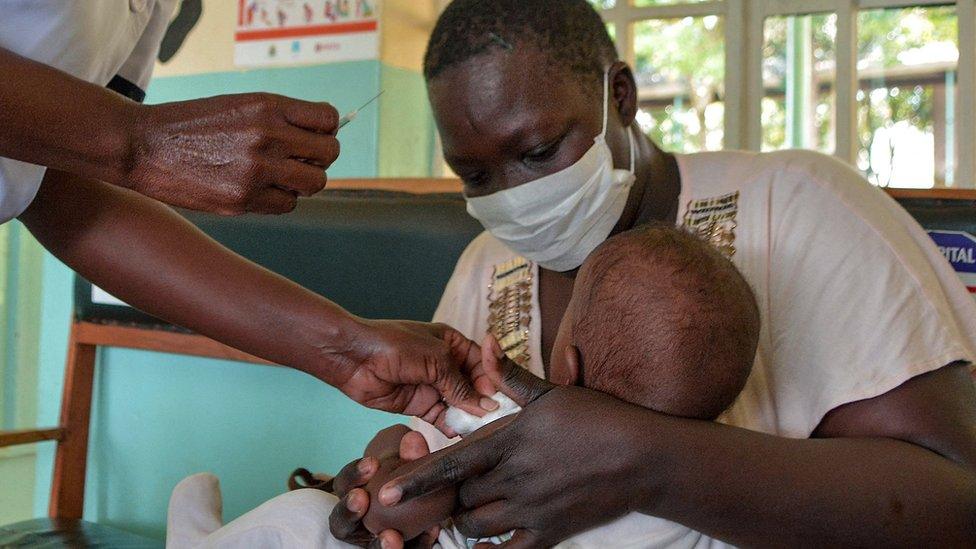Malaria vaccine 'best yet' says University of Oxford professor
- Published
- comments

A booster vaccine has been developed that has been shown to help protect children against one of the world's most dangerous diseases, malaria.
Malaria is a very serious disease, with statistics from the World Health Organisation showing that it infected 241 million people worldwide last year.
Scientists from the University of Oxford, the same university that created one of the vaccines that helped to prevent coronavirus, says they've had very positive results from a trial of the booster malaria vaccine.
Results showed that it was able to prevent up to 80% of infections in a small trial of 450 children, which delighted researchers.
Adrian Hill, a Professor of Vaccinology at the University of Oxford, said this was the "best data yet".
He added: "We hope that this will be deployed and available and saving lives, certainly by the end of next year."
What is malaria?
Malaria is spread through the bites of female Anopheles mosquitoes
Spread through the bites of female Anopheles mosquitoes, malaria infected 241 million people in 2020 and lead to the deaths of more than 627,000.
According to the World Health Organisation (WHO), 95% of all cases of malaria were found in Africa, though cases are also often found in South-East Asia, the Eastern Mediterranean and in the Americas.
It is particularly dangerous for children aged five and under.
Thankfully, there are lots of scientists and charitable organisations working very hard to help prevent malaria through vaccines, medicines and education.
If malaria is discovered early, there are ways to cure it. Netting, clothing and insect repellent are also often used to prevent bites from mosquitoes.
Nets are often hung over beds as a barrier against mosquitoes while people are asleep
But scientists believe that prevention is better than cure, and that's why there's been so much work done to find a vaccine that stops a malaria infection.
The WHO has already set a target of reducing the number of malaria cases globally by 90% by 2030.
Professor Hill says that there have been trials of "140 different malaria vaccines" since the 1940s.
And it seems that we are now closer than ever before to an effective vaccine that Professor Hill hopes will bring in a massive reduction in the number of people who die from the disease by the end of the decade.
What are the next steps?
The trial's positive results means that work can now begin to roll out the vaccines across areas that need it most.
Professor Hill says the vaccine will be quite cheap to make, and added that the vaccine manufacturer the Serum Institute of India (SII) is "willing and able to make 200 million doses a year next year".
But the biggest challenge will be distributing the vaccines to places that need it.
The University of Oxford is applying to the WHO for approval of their vaccine later this month.
In the meantime, the trials of this vaccine will continue over the next two years to find out just how effective it is in protecting children from malaria.
Results from a larger trial of 4,800 children are expected later this year. These results will be very important for the University of Oxford team if they want to gain approval for use of the vaccine from the WHO.
Last year the WHO approved another malaria vaccine created by pharmaceutical company GlaxoSmithKline (GSK), which will have 18 million doses distributed over the next three years.
- Published25 April
- Published23 April 2021
- Published3 December 2020
